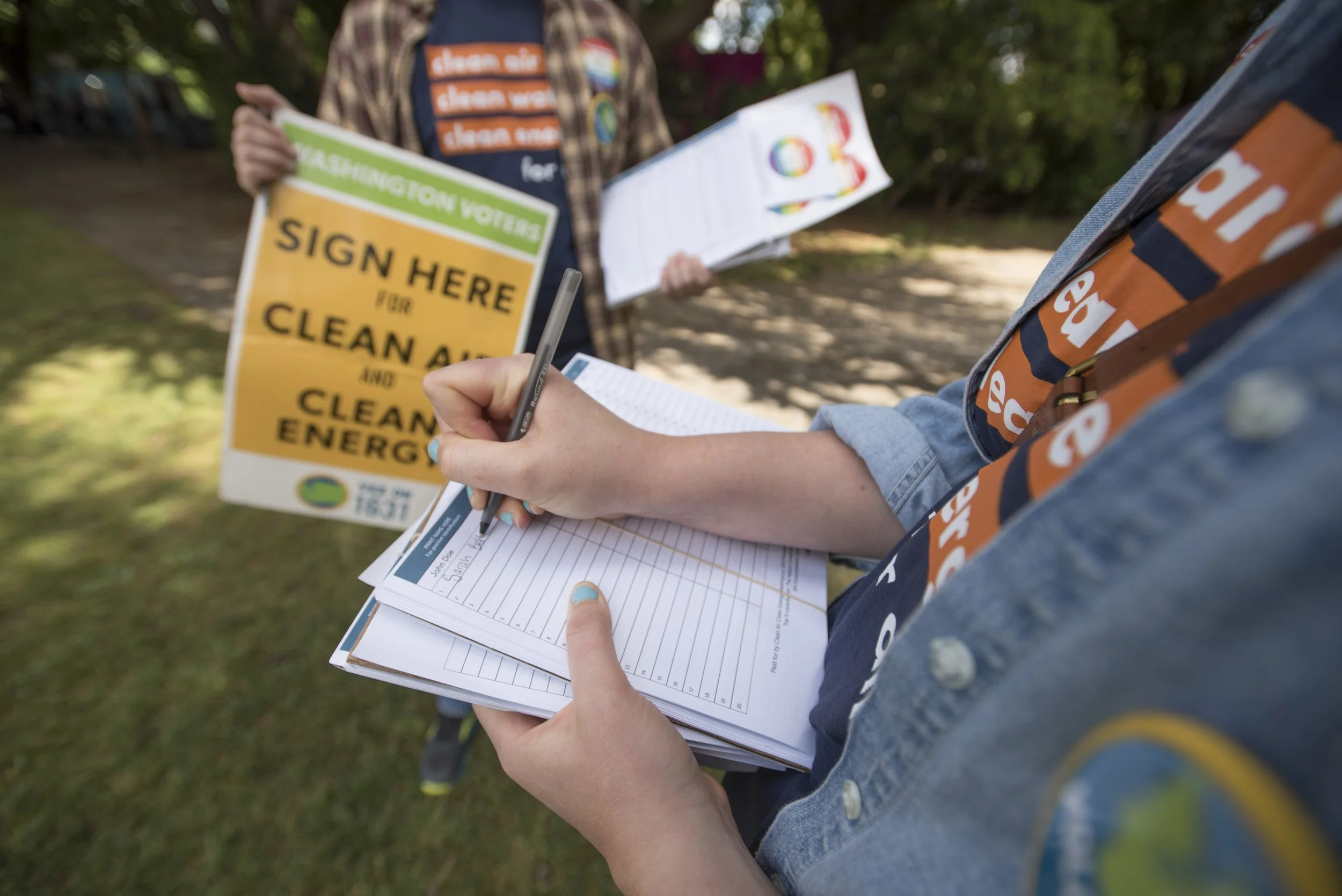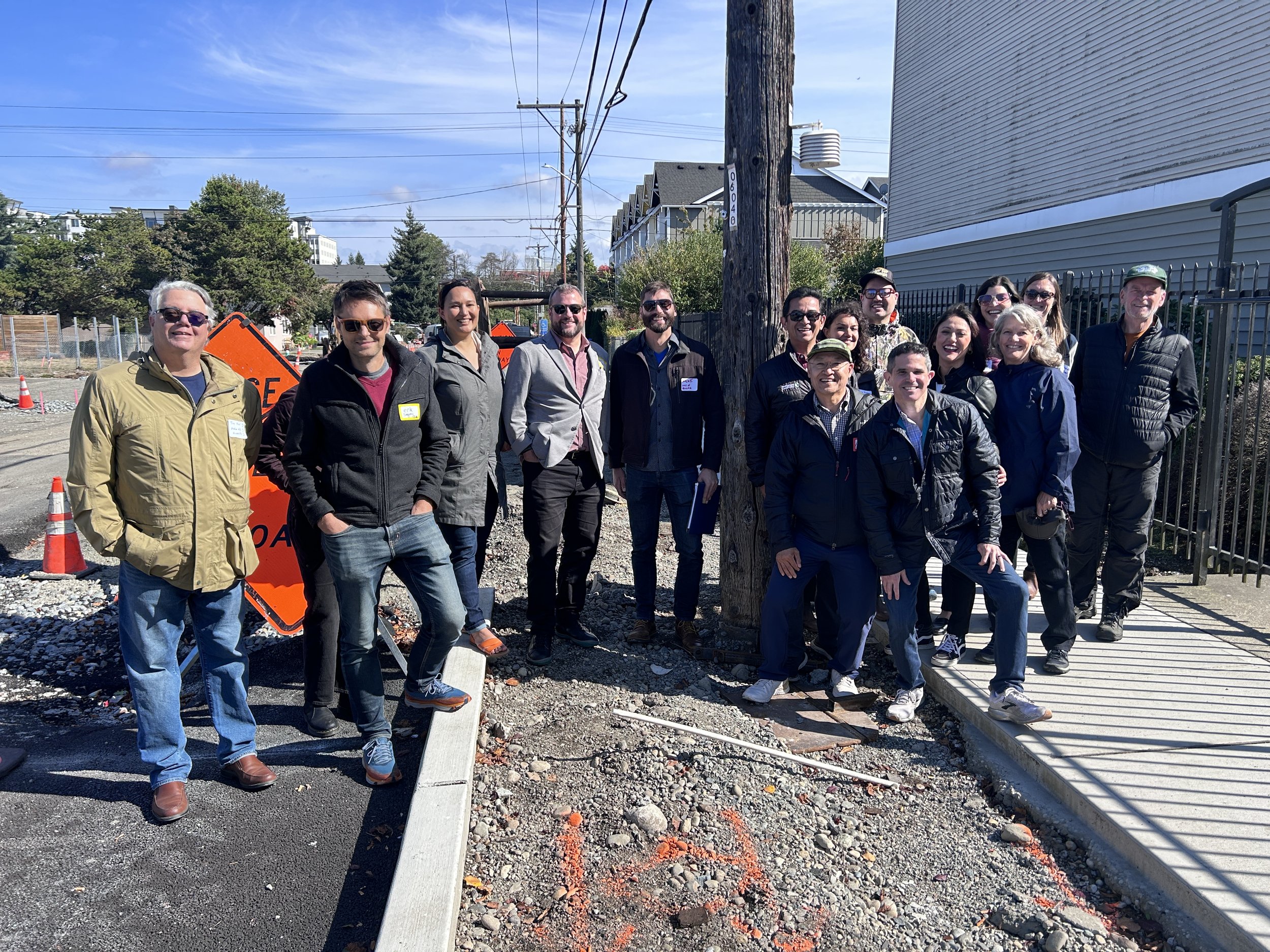Over the past few years, Washington state has enacted a number of climate-focused laws to address both current and anticipated statewide needs and opportunities when it comes to climate change. With just seven years until 2030—a critical tipping point by which we must make significant changes to avoid the worst possible outcomes of climate change—these policies have been significant steps in the right direction.
The Nature Conservancy in Washington’s involvement in the climate advocacy space has progressively increased since 2016, as climate change has posed an increasing threat to nature and people around the world. Our journey began with 2016’s Initiative 732 and expanded with 2018’s Initiative 1631. With each, TNC learned invaluable lessons, and recognized the critical role of frontline communities in developing solutions to our climate crisis.
These experiences led TNC Washington to join the Climate Alliance for Jobs and Clean Energy—a diverse coalition of environmental nonprofits, Tribes, BIPOC-led environmental justice organizations, and labor. 2019 saw passage of the Clean Energy Transformation Act (CETA), putting Washington on the path to 100% clean energy. This victory and the lessons learned in years prior with the initiative efforts laid the foundation for climate action that prioritized the needs of frontline communities with broad coalition-level support.
Volunteers champion 1631. © Hannah Letinich/TNC
At the end of the 2021 legislative session, Washington state began gaining national attention as a leader in climate policy after the passage of the Climate Commitment Act (CCA), Healthy Environment for All (HEAL) Act, Clean Fuel Standard, and the creation of a new wildfire resilience and forest health plan bringing unprecedented funding. However, these bills did not come without disagreements and controversy within the Climate Alliance. Additionally, a veto on tribal sovereignty provisions by the Governor damaged the executive’s relationships with Tribal governments. These outcomes have led to uncertainty in the future of broad-based coalitions and partnerships for climate action.
Back in the other Washington (D.C.), TNC has been supporting the federal government in enacting transformative policies to advance climate action. First with the Infrastructure Investments and Jobs Act (IIJA) in 2021 and then the Inflation Reduction Act (IRA) in 2022, with the latter being a once-in-a-generation piece of policy that puts the U.S. on a path to reduce emissions by 40% by 2030 and will jumpstart our transition to a clean energy economy.
Improved siting and permitting processes are essential for accelerating Washington’s clean energy transition. © Benjamin Drummond/TNC
Now, after the close of our state’s 2023 legislative session—and additional climate policy achievements like updating the Growth Management Act (GMA) and improvement of siting and permitting of clean energy projects—we’re taking stock and planning our next steps to further advance climate policy and action.
A Vision for Climate Policy Going Forward
Our vision is to dramatically and equitably reduce greenhouse gas (GHG) emissions across the state and beyond, and to increase community resilience as our climate changes. A key component to achieving this goal is the unprecedented funding from the IRA, IIJA and CCA that will accelerate climate action on both mitigation and adaptation fronts. It is critical that this increased funding is invested in, and guided by, frontline communities who have faced barriers to accessing state and federal dollars.
Integrating climate into community planning across Washington for a more resilience future. © Erin Spaulding/TNC
This year’s update to Washington’s Growth Management Act (GMA) embodies our belief in driving large scale climate actions through policy while increasing equitable access to resources. The GMA update is deeply wonky and technical, making changes to the goals and required elements and sub-elements for local comprehensive plans. However, the update holds state-wide, transformative potential to support communities both by reducing their climate impact through land use and increasing their resilience to climate change through long-range planning tools. TNC in Washington successfully advocated alongside partners for this GMA update to include environmental justice principles, expand community engagement, and require the Department of Commerce to provide guidance and resources to ensure local communities were able to truly achieve the policy's aims.
Our advocacy on the GMA update reflects principles we will continue to hold moving forward with climate policy advocacy and implementation: supporting transformational legislation built on environmental justice principles that includes technical and financial assistance for local communities to ensure widespread adoption.
How We’re Going to Get There: Big Pictures and Little(r) Details
Passing climate legislation is a just the first step in a multi-pronged strategy to ensure durable progress.
The work begins with the effort of getting equitable climate policy signed into law. Next is an often-overlooked step of effective climate advocacy work: ensuring what has been passed into law is implemented effectively so that the government is delivering on promises and goals of enacted legislation, and where people can see and feel these impacts in their everyday lives.
The process of creating and implementing successful climate policy is ongoing. Each year we identify our key state legislative priorities (e.g., 2023 priorities). Then, we look to our robust toolbox to move those priorities forward, including inspiring our network to act, coalition building, direct advocacy with elected officials and state agencies, Trustee Days, convening and facilitating discussions with stakeholders, publishing op-eds, and more.
TNC Trustees and staff visit with legislators and Governor Inslee during Trustee Lobby Day. © Hannah Letinich/TNC
In between legislative sessions—we are committed to continued engagement in how legislation lands on the ground. For example, after passage of the CCA in 2021, there were public comment periods and rulemaking processes that played a critical part in how the CCA was implemented on the ground. We were an active partner in helping inform and shape the processes, especially when it came to the Air Quality program embedded in the Greenhouse Gas reduction program under the CCA. Follow-through during the initial public comment period and rulemaking was critical to ensure air quality monitoring guidance was robust and inclusive from the start. These efforts saw us working with partners, scientific researchers, and policymakers alike to ensure the CCA is implemented as intended.
At a much, much larger scale, it is also critical that we work with partners around the funding opportunities that are in the pipeline through the IIJA, IRA, and the CCA. We seek to continue supporting and resourcing communities directly to lead on climate mitigation and adaptation, especially by providing our technical expertise and organizational capacity to support others’ access to funding.
Throughout our climate policy advocacy and implementation journey, we’ve consistently been reminded of the importance of relationships. Partnerships and coalitions remain one of the most powerful ways to achieve broad support for climate legislation, and we remain committed to advocating as a collective built on a foundation of strong relationships with implementation as well.
Climate policy advocacy and implementation is a relatively new area of work for our organization, and with that relative newness comes learning, stretching, and leaning in in new ways. And, we continue to be engaged in critical climate science and conservation work in communities across Washington state that inform our policy approaches. Further, it is important to note that climate policy advocacy and implementation is, and will continue to be, one of many approaches we’re prioritizing for climate action.
Thanks to the generosity, patience, and support of partners and collaborators, we’ve learned a considerable amount over the years—all of which we are grateful for. We are also grateful to all of our supporters, without whom much of our work wouldn’t be possible. Thank you for your participation and support of climate action!
You can follow along and learn about ways you can support climate advocacy and action by signing up for email updates below.
























